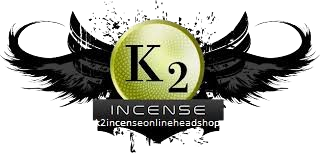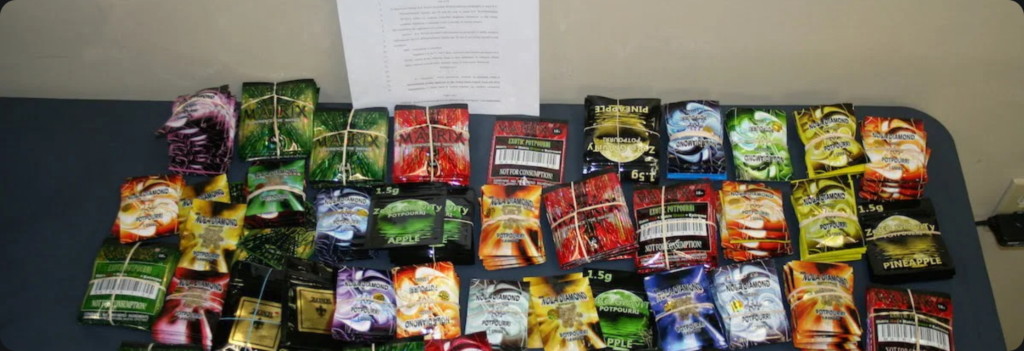herbal incense, liquide incense, RESEARCH CHEMICALS
What’s going on with the Dutch Research Chemical ban?
Drug Mecca is under siege, but there’s still time to save her. The government of the Netherlands has decided to pursue a ban on novel psychoactive substances in response to pressure from the UN to crack down on this still legal market where users currently buy k2 spice online as well as other forms of synthetic cannabis often labeled as fake weed or herbal incense/herbal vape liquid, c-liquid or kronic vape juice.* When these chemicals are sold for research purposes rather than for use in humans they bypass laws geared at preventing the sale of psychoactive drugs and provide a safe source of pure product for savvy drug users. The geriatric drug-warrior politicians of the 80s and 90s find this unacceptable and wish to try to regulate a market they don’t remotely understand. Currently, lobby groups are mobilizing to attempt to create a safer outcome for drug users from this but it is an uphill battle against a political group out of touch with the harm they will cause to the citizens they are sworn to serve and the rest of the world. Despite earlier bans, the Netherlands has remained the main hub of research chemicals and other psychoactive substances in the European Union (EU) and this shock to the legal and somewhat regulated high supply chain is just going to push the market underground into the black market where it is impossible to regulate the labeling and purity of the substances in question as it did with the amphetamines and MDMA. To fight these changes please sign the petition in the footnotes of this article.* It was originally scheduled for October 1st but is now scheduled to come into effect on December 7th, 2021 so there is still time to prevent this travesty from occurring.*
The best herbal incense websites are already working hard to prevent these changes to the synthetic weed supply from being pushed through to maintain a safe supply of the best herbal incense online rather than simply transitioning to new liquid herbal incense formulas that bypass the ban at the expense of their customer’s safety. If this ban passes buying K2 Spice online and other forms of herbal vape liquid will become increasingly dangerous with synthetic weed for sale online giving way to new and experimental drugs in unexplored classes.
In the Netherlands, two main legal Acts are utilized to combat illegal drug prevention, the Opium Act and the Chemical Abuse Prevention Act (CAPA). The Opium Act focuses on prohibiting end products/psychoactive substances themselves* and the CAPA focuses on precursors and substances necessary to manufacture prohibited drugs.* Though the majority of precursors come from China the effectiveness of the CAPA controls is rather limited, though this may change in light of China’s new ban on synthetic cannabinoids and other drug precursors as other countries step in to fill the void created by this ban as discussed in my previous article on the Chinese ban.* European Law Enforcement is hesitant to deal with Chinese Law Enforcement which has remained a significant deterrent to any effective policy to regulate this trade, This is because the information they provide could be used to justify executions due to China’s barbaric use of the death penalty for drug-related offenses which creates a public relations and moral crisis for those providing information to the Chinese Communist Party’s enforcement arm.*
The Opium Act made Cannabis technically illegal but allowed cannabis and hashish distribution through its ‘tolerance policy.’ This policy allowed for distribution through officially approved channels under specific conditions such as only allowing sales of 5 grams of cannabis or hash in a single transaction and capping the store’s stock at under 500 grams.*.* Cost-saving production for personal was also banned, greatly to the detriment of medical cannabis users as even small quantities of plants were made illegal, though in practice the penalties focused on production facilities by enforcement prosecuting those with 5 or more plants but usually just confiscating smaller grow operations with less than 5 plants.* Already these restrictive policies have reduced the number of coffee shops from 350 in 1999 down to less than half of that at 165 in 2017 making it more difficult for cannabis users to find quality products and pushing them into the black and grey markets* In 2013 Coffee shops were further restricted and only allowed to sell to 18+-year-old Netherlands residents which only accelerated this change.*
Now in 2021, the Opium Act is scheduled to be updated on December 7th to crush the legal research chemical market,* and it’s still a legal and regulation-friendly distribution network.* This wide-spanning act specifically targets the safer synthetic cannabinoids like the JWH series and Delta-8 THC* as well as targeting entire classes of drugs with laws that will be incredibly difficult to enforce as they hit the courts much like the American Analog Act of 1986. New targets in this proposed bill include the cathinone class including the popular 3-Methylmethcathinone (3-MMC / 3MMC), a popular 3,4-Methylenedioxymethamphetamine (MDMA/Ecstasy) alternative; 4CMC (4-Chloromethcathinone) and A-PHP (alpha-Pyrrolidinohexiophenone), both popular euphoric stimulants in the cathinone class.* It also targets dozens of amphetamine, benzodiazepine, and phenmetrazine analogs.* Phenmetrazines are the newest group in the stimulant class which were explored as a way to bypass the bans on the cathinone class much as the cathinone class was explored to get around earlier bans on the amphetamine class.* It remains to be seen what new class will replace the phenmetrazines if they foolishly go ahead with this ban but the antibiotic cocaine-like Oxolinic Acid and other Quinoline Antibiotics with similar effects are an example of a riskier class that may be exploited to fill the void created by this short-sighted bill. Each time one class is banned it simply pushes users to riskier alternatives with fewer studies and information available each time. This raises the risk of harm as well as of overdosing as the safe dosages are not always known in the early stages of the drug being explored.
This is not the first time the Dutch government has tried one of these bans. Drug Mecca has been under siege for decades with no depression of the illegal drug trade resulting from it. Amphetamines were banned as early as 1976 but that simply pushed the giant amphetamine market into the unregulated illegal supply network.* This gave up any ability to regulate the market and, by 2017, had dangled an enormous 28.9 billion euro carrot for those willing to endure the legal risk.* Despite this ban the Netherlands has continued to be the major hub in Europe for the amphetamine class as well as LSD, GBH, and other illegal drugs with no clear positive result from previous bans.* MDMA was another amphetamine that was specifically targeted in the ban of 1988 which simply pushed the drug market out of the hands of regulation-friendly producers and distributors to the regulation-impossible black market to the detriment of drug users and underground therapy centers across the world.* In 2000 the well-known liar President Bill Clinton managed to bully the Netherlands into an extradition treaty where Dutch producers shipping MDMA to the USA could be extradited to the corrupt American legal system to face charges instead of being tried by their peers in the Netherlands.* All these bans managed to accomplish was pushing the MDMA market into the black market with the initial effect of creating MDMA analogue use with worse side effects than MDMA.* Eventually drug producers found new precursor chemicals to work around the regulations and MDMA became more common again.*
Once again we see Drug Mecca being attacked by politicians with limited knowledge of the impacts their policies will make and more interested in pleasing their foreign allies than looking after the health and welfare of their citizens. There is still time to rally a defense and protect the supply chain from falling into the black market. Regulation is a far better alternative to a blanket ban as it allows for preventing the drugs from being sold to minors as well as preventing the adulteration of products and allowing legal recourse for those who are harmed by the mislabelling of drugs. If the drug is banned and goes into the black market there is no hope of achieving either of these aims which only serves to harm the citizens of the Netherlands and the rest of the world.
www.startbeterdrugsbeleid.nl Sign here to fight the Dutch Noid Ban
Further information is available at:
http://buycannabinoidssales.com/the-ban-last-news/

